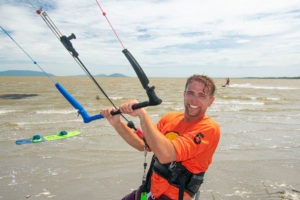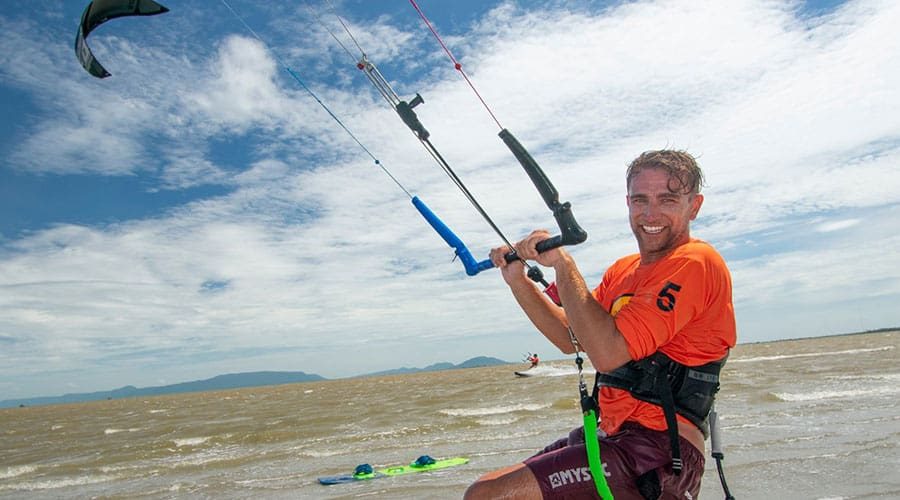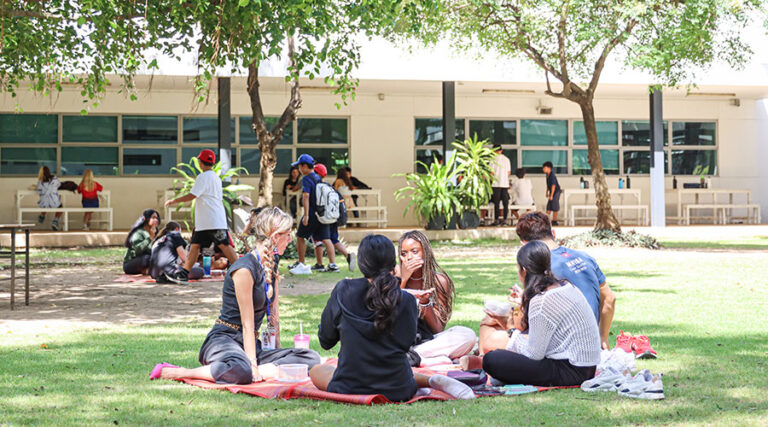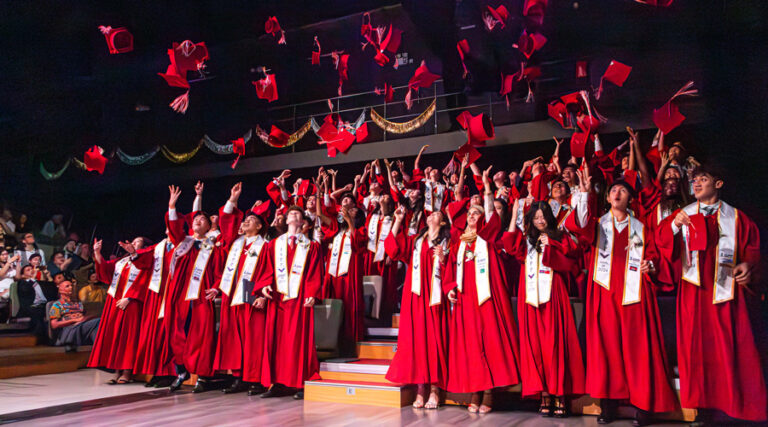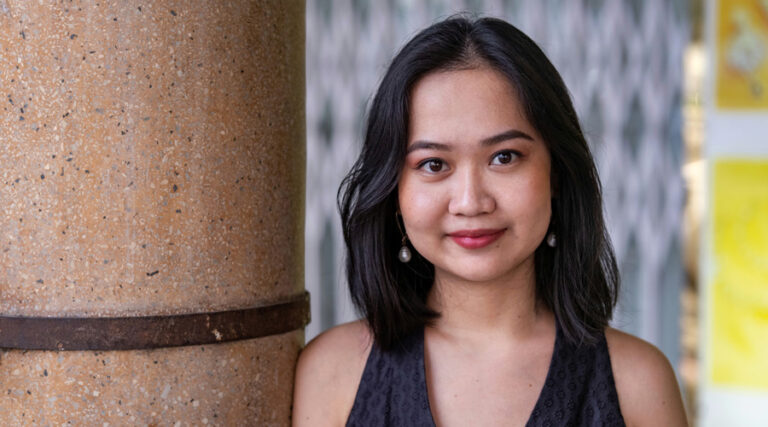Alumni Interview: Frank van Zoggel
Years at ISPP: 1991 – 1993
Hi ISPP! My parents arrived 35 years ago to work at the refugee’s camps on the Thailand/Cambodian border when they were 21 years old. My older sister, younger brother and myself were all born in Bangkok but grew up in Phnom Penh in the early ’90s.
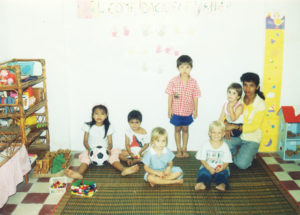
When I finished kindergarten at ISPP we as a family already left Cambodia to go back to The Netherlands, where I had some difficulties adapting myself to the school, cold and language in the beginning. My father was working as a history teacher but missed working in Cambodia so went back six months per year for work.
In 2009 after graduating from Sports Management Leisure Outdoor, I wrote a business plan based on our holiday house in Kampot to set up a kite school with some sports activities for water sports such as paddleboarding, kayaking, wake/knee/ski/boarding, boat cruise, mountain biking and many other things.
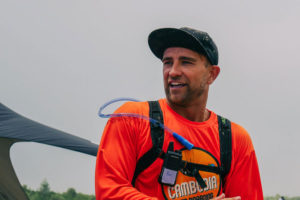
Every year we had the honour of hosting the graduating class from ISPP. One year, I had the pleasure of having Julien Schill as an assistant kite instructor as an internship in 2016.
I am still in close contact with old ISPP students from the early days, which I have visited in America, England, The Netherlands and have seen them often here in Cambodia.
Recently we had a few ISPP teachers who took some kite lessons with us and are now trying to get on the board! I can’t wait to share my passion with them again, or any other students who are looking for an extreme sport to do in this beautiful kingdom.
How did you adjust to the new culture when returning to The Netherlands?
My mother comes from a big family (9 members), however, they all live across our little country, yet my father’s side live all in the same village (4 family members). Luckily, my father’s sister had two kids who also lived in Phnom Penh. We played with them a lot when we grew up. I joined a football club where I met most of my close friends until this day.
What did you miss most about living in Cambodia when you moved?
The beaches, nice weather, rice dishes, playing in the rain, the chaos.
What are your recommendations to those moving to new countries?
You come from a different country where you met hopefully many interesting friends and people, stay in contact with those who you love, try to pass on the positive/friendly/respectful vibes you received growing up here. You are the future.
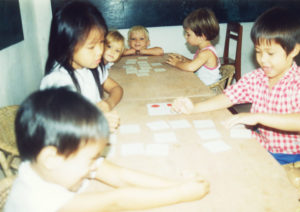
How has living in Cambodia affected your outlook on the world?
The Khmer Nation gets nominated every year first for being the friendliest place on earth. With having many problems in the past or present, they have a great heart; willing to always give, help others.
Hopefully, we can give something back, helping the struggles they will be facing soon with overpopulation, waste disposal, pollution, ocean acidification, deforestation and loss of biodiversity.
What were your parent’s jobs in the refugee camps?
My mum started in 1982 as an English teacher in the Phanat Nikom refugee camp. As a volunteer for Consortium, she taught English as a second language to refugees from Laos and Cambodia who were going to live in the United States.
In 1984 moved to Aranyaprathet at the border, to work in refugee camps where Cambodian refugees stayed until it would be possible for them to return to their homeland. This is in contrast to the refugees in Phanat Nikom, who did not want to go back to their homelands. She worked in different camps called Site II.
Together with a small group of Cambodian volunteer social workers, they started courses to make life easier and to make them aware of important aspects. Since there were many more women than men living in the camps, this was the target group. Daily, many of them came to participate in reading and writing courses (the vast majority could neither read nor write) and furthermore in all kinds of practical matters such as silk/cotton weaving, sewing, knitting, food preservation, child care, basket weaving and hygiene.
How did you discover your passion for water sports?
We used to go to Hotel Cambodiana all the time. We played in the pools non-stop. Diving off stuff, creating games…
We visit the beaches in Sihanoukville often, where my brother and I got some scars on our bodies from playing in the waves with tubes hitting rocks. I have the feeling that back then the shore breaks were much bigger.
So I guess I always liked playing in the water, but to be able to enter my “Sports scholarship” I had to be in procession of Swimming diploma A. Somehow I never got the paper when I was young, so when I was 16 years old I had to join the exam with kids starting from the age of 4 years old. Someone even asked me if I was the examinator for that day.
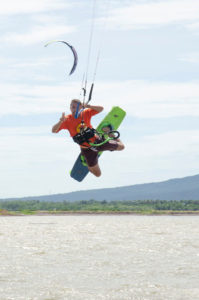
Were you always interested in extreme sports when you were younger?
I guess not. Football was always my passion! When I had the chance of 52-meter bungee jumping in Las Vegas on Friday 13th when I was 11 years old, I backed out, but my sister went for it anyway.
How did you navigate setting up a school in a “foreign” country?
With a solid business plan and always having a great team around me, it turned out really good. We started small, with just four rooms. We gradually moved forward in the right direction. In the first seven years, I was living alone in Kampot, as my dad would just come for the weekends. I would call him regularly to ask for guidance and get enough feedback to work on from those weekends. I guess you learn the most by just going for it. Surely If I can start over I will do many things differently.
What drew you to Kampot?
My father and his best friend looked around to invest in some property to build their holiday house on. Because of their work, they have been all over the country but surely Kampot is one of the most beautiful places with its location closest to Phnom Penh. I have spent Christmas and New years here for the past 16 years. It feels like a second home. After finding out that this spot has seven amazing months with blasting wind, I knew I had to focus on putting Cambodia on the map for Kiteboarding.
How has COVID affected your career in water sports?
Unfortunately, many kite friends and regular guests have left Cambodia due to COVID-19. Because some people decided or couldn’t travel outside of Cambodia, it injected a new group of kitesurfers who took the opportunity and started with this extreme sport. Kiteboarding is one of the fastest extreme growing sport in the world for many years and now due to COVID regulations (1.5m distance), it was still possible to learn this sport.
What are your plans for the future?
To train people with Cambodian nationality how to kiteboard, so they can enter and compete in the Olympics.
